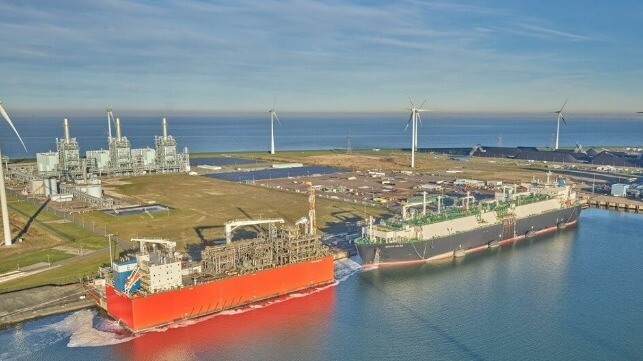Netherlands Ramps Up FSRU Capacity to Get Ready for the Next Winter

Building on the success of the growing number of temporary LNG import terminals in the EU, Dutch utility Gasunie is looking at ways to increase its import capacity - including adding floating storage and regasification units (FSRUs).
Demand for FSRU units has been booming as Europe moves increase its energy independence from Russia. The Netherlands, Germany, Italy, Finland and Estonia have all chartered FSRUs in an attempt to rapidly boost LNG import capacity, and those efforts are just beginning to bear fruit. Germany's first new FSRU landing site was completed on an ultra-rapid timetable in November, and the Netherlands' two-FSRU terminal at Eemshaven came online in September.
Gasunie has helped to double the Netherlands' LNG import capacity this year, thanks to its new FSRUs at Eemshaven and the expansion of its GATE LNG terminal in Rotterdam. But it is not yet done. The utility is now investigating ways to expand both sites even further, including one or more additional FLNG vessel, and it may add an expansion location at the Port of Terneuzen.
The measures under consideration would be timed early enough to contribute to the summertime storage filling season, beginning in April 2023, and before the winter of 2023-4.

that matters most
Get the latest maritime news delivered to your inbox daily.
In addition to Gasunie's efforts to supply the utility grid, Vitol-owned terminal operator VTTI plans to charter in its own FSRU to meet industrial gas needs at an unspecified location in the Netherlands. The new vessel will have an annual capacity of about five billion cubic meters, enough to supply 15 percent of the nation's needs.
LNG has become critical to Northern Europe's energy security, but the price is exceptionally high. To address cost, the EU is working on joint procurement plan so that member states are not bidding against each other. As the urgency of securing an immediate gas supply recedes, EU states can also begin to look at signing more and larger long-term supply contracts to lock in stable pricing.
